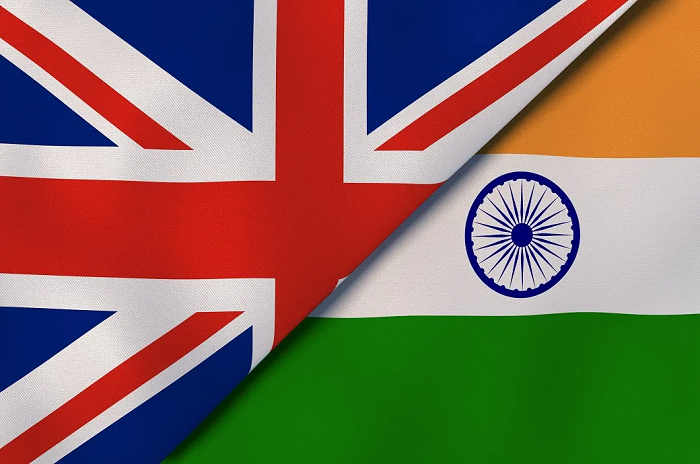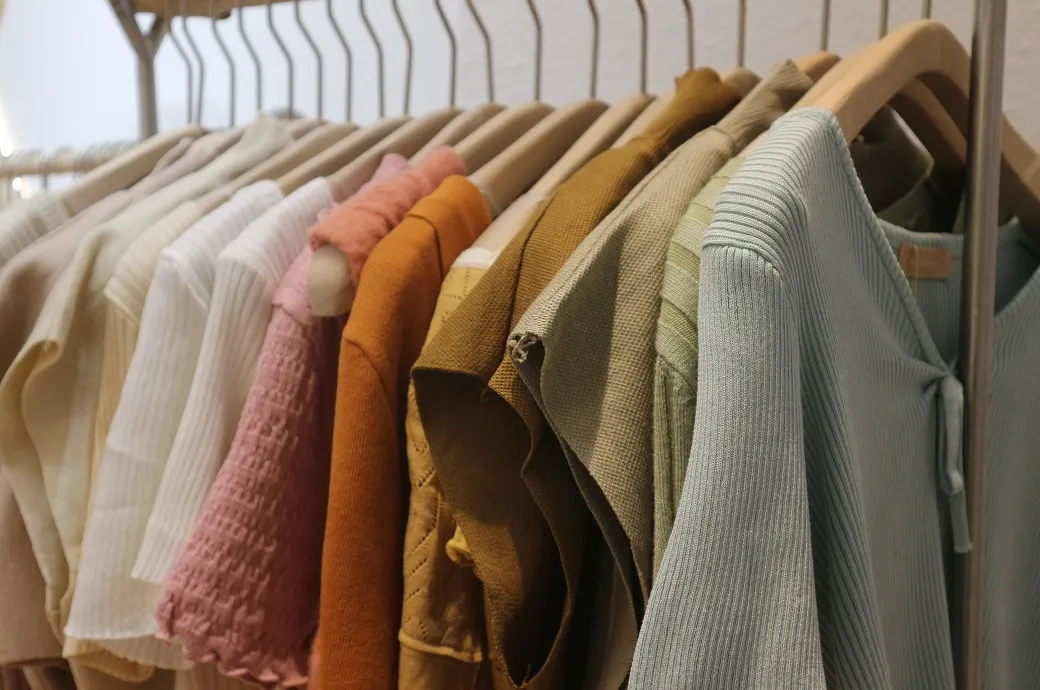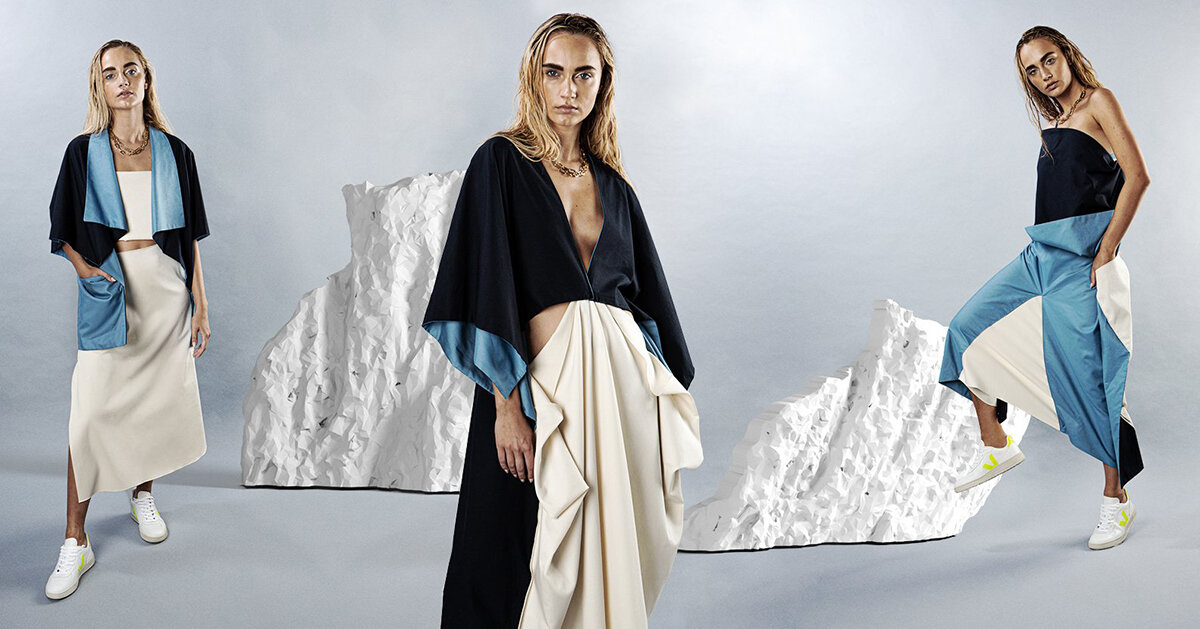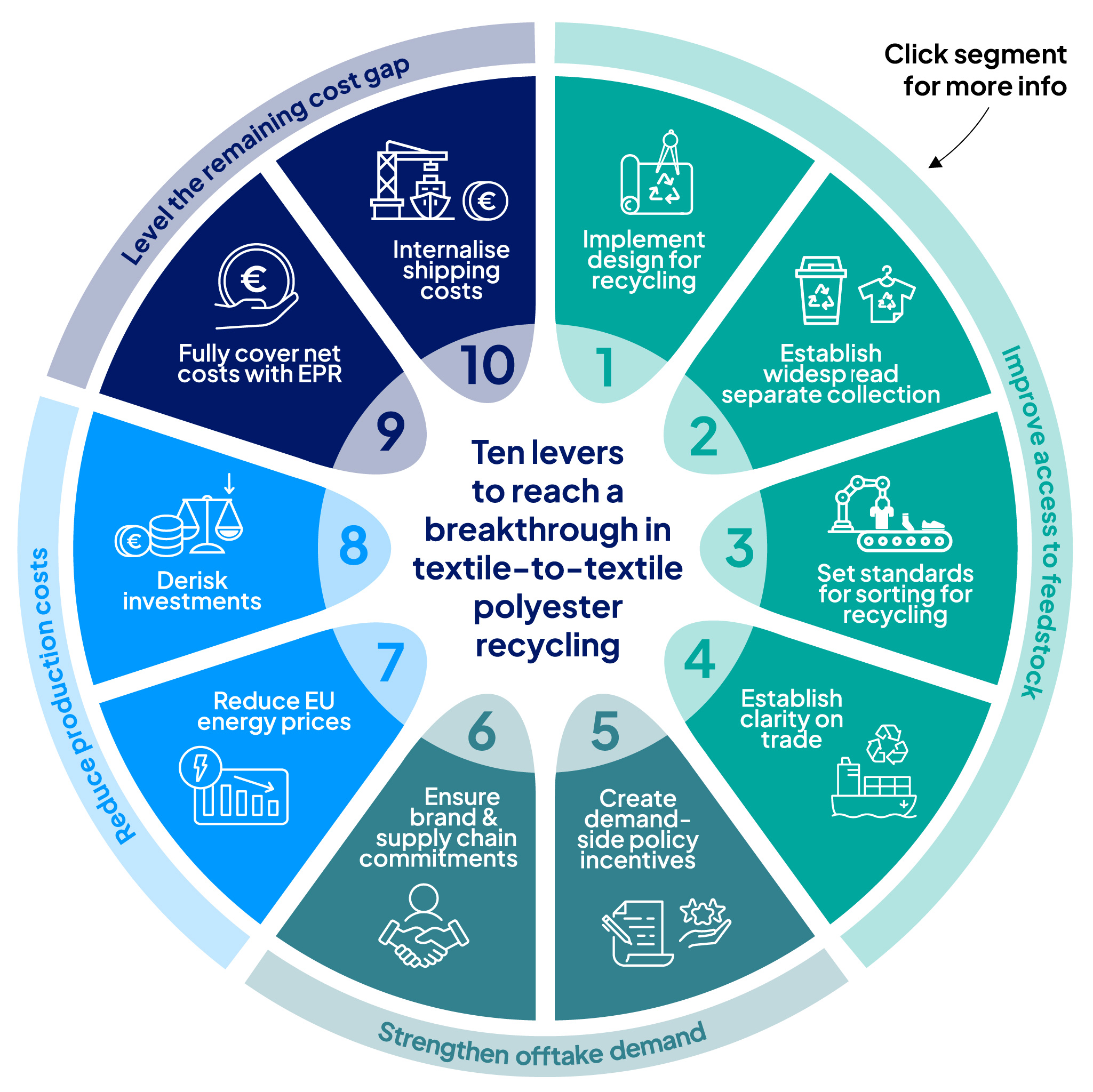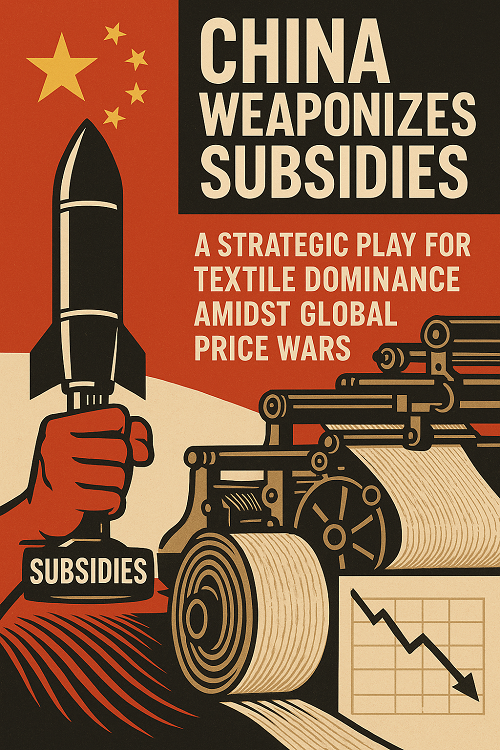FW
Global Sources fair is being held in Hong Kong from April 27 to 30. This is a one-stop sourcing platform for apparel, fashion jewellery, underwear and swimwear, bags and luggage, scarves, footwear and fabrics. Global Sources’ fashion show assembles top suppliers from mainland China, India, Korea, Hong Kong, Taiwan, Thailand, the Philippines, Vietnam and across Asia. Dedicated brand walls have been set up to help 330 ODM/OBM suppliers promote their own designs and brands.
The event helps buyers discover items that will be hot in the coming months and matches demand for specific product categories. A broader selection of footwear and functional fabrics has been brought in this spring. The selection for bags and luggage has been increased by 50 per cent from the previous show.
By connecting the traditional and new, the experienced and the young, Global Sources aims to create a fashion ecosystem to help manufacturers move up the value chain. Global Sources is a leading business-to-business media company and a primary facilitator of trade with Greater China. More than a million international buyers, including 95 of the world’s top 100 retailers, use its services to obtain product and company information to help them source more profitably from overseas supply markets. These services also provide suppliers with integrated marketing solutions to build corporate image, generate sales leads and win orders from buyers in more than 240 countries and territories.
"Balenciaga has become the hottest fashion brand beating Gucci. Latest research, indicates Demna Gvasalia-designed brand went up two notch to top the hottest brand ranking in the third quarter of 2017. Even after slipping one rank, Gucci continues to excel as the most consistent performer in the hottest brand ranking to date this year. Between July and September, the label launched Gucci Décor — an eclectic line of home furnishings and treatments — and announced its collaboration with Dapper Dan, driving brand searches across the e-commerce sites Lyst aggregates."

Balenciaga has become the hottest fashion brand beating Gucci. Latest research, indicates Demna Gvasalia-designed brand went up two notch to top the hottest brand ranking in the third quarter of 2017. Even after slipping one rank, Gucci continues to excel as the most consistent performer in the hottest brand ranking to date this year. Between July and September, the label launched Gucci Décor — an eclectic line of home furnishings and treatments — and announced its collaboration with Dapper Dan, driving brand searches across the e-commerce sites Lyst aggregates.

The impressive ascent of Virgil Abloh’s Off-White, jumping 31 places is touted to be the biggest game changer. It has become the third-hottest fashion brand in the world in Q3, knocking Kanye West’s Yeezy, which ranked number two last quarter. Abloh is the brainchild of young fashion designers who have been vouching for streetwear through high-end production. While it has been eyeing its target audience, Millennial and Gen-Z consumers, carefully, by mixing high and low price points as well as disparate aesthetic and cultural influences, critics find fault in the brand’s referential nature. But the financial results have another story to tell.
In July, Off-White partnered with optical disruptor Warby Parker on a line of sunglasses, and in September Abloh paid sartorial homage to Princess Diana during the brand’s Spring/Summer 2018 show. However, the brand’s biggest driver by far was a collaboration with Nike, which saw Abloh reimagine 10 models from its archive including the Air Jordan 1, Air Max 90, Blazer, Hyperdunk and Air Force 1.
Streetwear gets a boost
Bain & Company opines, as Gen-Z consumers’ share of wallet grows, streetwear has helped boost global sales of personal luxury goods by 5 per cent to an estimated total of €263 billion ($309 billion) in 2017. Indeed, digital natives that have grown up in an era of hype-culture and product drops are the perfect conduits to build buzz online. This quarter, four of the five new entrants to the Lyst Index — Off-White, Stone Island, Moncler and Raf Simons — are in the streetwear sweet spot, making an appearance in top 10 for the first time. Casual-wear brand Stone Island jumped 33 places this quarter, thanks to leaked details on its upcoming collaboration with Supreme, and the impact of Canadian rapper Drake’s decision to exclusively wear Stone Island on stage during his ongoing world tour. Similarly, searches for Moncler spiked after British rapper Skepta was photographed wearing the brand's upcoming collaboration with Craig Green.
Looking at the streetwear wave, Raf Simons, who in June won both the best women’s wear and menswear designer CFDA awards for his work at Calvin Klein, launched ‘duct tape belt’ priced at £281 (about $372) in August. The Belgian designer is regarded a streetwear inspiration by a number of influential rap artists, including Travis Scott, Frank Ocean and A$AP Rocky — in July, A$AP Rocky released a single entitled ‘RAF’ in tribute, contributing to a 34 per cent spike in Raf Simons search enquiries this quarter.
Top 10 products
The ranking continues to be dominated by womenswear and is made up of the similar category mix as in Q2. Footwear continues to be the strongest category with five different pairs of shoes featured on the list, including, in fifth place, the Gucci Bloom sliders which topped last quarter’s product ranking (and were the only re-entrant).
Rwanda may waive the 25 per cent customs duty on imported fabric, a move that is meant to boost production of locally-made garments. The number of garment makers and co-operatives is increasing in Rwanda. The policy seeks to, among other things; stimulate local industries by banning the import of secondhand clothes. There is a feeling that on the one hand Rwanda’s fashion and tailoring sectors would experience a boom once the industrialisation policy comes into effect but on the other hand, they could also shrink and potentially disappear due to stiff competition from cheaper imports from Asia.
Many co-operatives in Rwanda prefer to buy cheaper fabric from Asia, mainly China, India, Taiwan and Indonesia, as they are not satisfied with the quality and quantity that is produced domestically. There is a fear that if taxes are waived, every tailor and fashion designer will go to China to import the fabric and this will benefit not Rwandan textiles but those in China, Thailand and Bangladesh.
Rwanda’s textile factories are struggling to stay in business due to competition from imported fabrics. Because the majority of Rwandans prefer secondhand clothes, the mills have been forced to cut production. They are also grappling with high production costs.
Reliance Industries has partnered Bhilwara-based Star Cotspin, a leading manufacturer and exporter of sewing threads in India. Reliance is one of the largest manufacturers of synthetic fiber in the world.
Star Cotspin is one of the largest grey sewing thread producers in India, having shown the fastest growth in recent years. As per the agreement, Reliance’s Recron SHT, the world’s best quality super high tenacity fiber, will be the basic substrate for polyester sewing threads manufactured by Star Cotspin. This yarn will then be sold, cobranded with Recron SHT. Apart from branding the products, RIL will also provide marketing and technical support to Star Cotspin.
Star Cotspin will be the first company in north India to be certified under the Recron SHT branding program.
Reliance and Star Cotspin will jointly conduct research and development work to further enhance Recron SHT sewing thread’s quality, and will also explore new business opportunities. Reliance will also support Star Cotspin in creating awareness about standardised high quality sewing thread products among key stakeholders, especially spoolers and apparel manufacturers.
Star Cotspin is planning to undertake a 12,000 spindle expansion project. Six thousand spindles each are expected to be allocated to optical white and black yarn. The company expects to double the consumption of Recron SHT fiber by the end of 2017.
Orissa will set up 19 common facility centers at different weaving clusters to give a fresh lease of life to the handloom and handicraft sectors. These centers will help weavers and craftsmen incorporate new and innovative designs in their work in tune with market demands. One such center has already come up.
New designs, keeping in mind global demand, would be developed and then provided to the weavers and craftsmen. The move would help craftsmen explore new markets and earn more. The artisans would also be provided short-term and advanced technology training in different crafts to improve their skills. Advanced machinery would be installed at these centers for design prototypes and sample development.
A handicraft museum is being set up and it will have a huge collection of art and crafts from across the state. The museum is being developed on 12 acres of land. Antique equipment associated with weaving and those having historical and cultural significance for the handloom sector are being collected for the museum. Craftsmen and artisans would give live demonstrations at the museum.
The state will also promote Tussar silk weaving. A silk park will be set up.
Recently, the Turkish government released its final decision on anti-dumping investigation of US cotton. Based on assertions that US cotton was dumped into Turkey injuring the domestic fiber market - which the National Cotton Council (NCC) steadfastly challenged - a three per cent CIF (cost, insurance and freight) duty has been imposed on all US cotton fiber imports into Turkey, effective immediately.
The country is the second largest export market for US cotton with shipments ranging between 1.5 and 2.0 million bales. The duties automatically put US cotton at a competitive disadvantage to cotton produced in other countries, thus seriously jeopardizing business with Turkish mills.
According to NCC Chairman Shane Stephens, the investigation, which was initiated in October 2014, was clearly in response to several US trade investigations of Turkish steel imports. In an unusual move, he noted that the Turkish government self-initiated the investigation without any showing of special circumstances as is required under World Trade Organization (WTO) rules.
Africa’s top cotton producer and the only West African nation that has ventured into biotech farming, Burkina Faso has decided to ban GM cotton produced by Monsanto on quality grounds. Earlier Burkina Faso, the world’s 10th largest cotton producer, announced it was giving up Monsanto’s GM Bt cotton as it had proved uneconomical. Burkina Faso embraced GM cotton in the 2000s in the hope of bumping up returns on what became its top export in 2009 after surpassing gold. With four of its 19 people dependent on the so-called ‘white gold,’ the importance of cotton to the West African nation cannot be understated.
The nation’s association of cotton producers now say GM cotton, though producing higher yields, has resulted in a significant drop in the quality of crops. According to producers, between 2011 and 2016, the industry incurred losses worth $82.4 million and is now demanding compensation. Wilfried Yameogo, Director, Sofitex, Burkina Faso’s main cotton company said earlier this month that Burkina Faso's Inter-professional Cotton Association (AICB), which consists of the country’s main producers and the national cotton farmers’ union, is now targeting 100 per cent conventional production.
After three years of Rana Plaza factory collapse which killed over 1,200 workers, persistent and growing violations by the Bangladesh government of its responsibility to respect workers’ rights have forced the ITUC to lodge a Freedom of Association case at the International Labour Organisation (ILO). With the Registrar of Trade Unions refusing legitimate registration applications for unions in the garment and other sectors, workers are being deprived of their right to collective representation, and local employers continue to repress union activity with impunity.
According to Sharan Burrow, ITUC General Secretary, while the Bangladesh Accord is saving lives, the authorities are still colluding with local factory bosses to repress workers’ rights. Few employers have agreed to bargain with registered trade unions for decent pay and conditions. The government continues to show callous indifference to the very people who contribute most to the economy, putting key export markets at risk.
The case, which will be heard by the ILO’s Committee on Freedom of Association, details how the government has rejected nearly 75 per cent of union registrations in 2015 for spurious reasons, sought the dissolution of existing unions, and stood idly by when factory management have engaged in union-busting in contravention of the Bangladesh Labour Act and criminal law. Some union leaders have been beaten and hospitalised, while in other cases all the members of union executive boards have been sacked. ITUC represents 180 million workers in 162 countries and territories and has 333 national affiliates.
The European Union is planning to start free trade talks with Indonesia in line with the wishes of the bloc to boost economic ties to Asian countries. This was decided following EU commission president, Jean-Claude Juncker’s and European Union Trade Commission, Cecilia Malmstrom’s talks with the Indonesian President Joko Widodo, in Brussels recently. According to Juncker, they've agreed on the preparatory discussions for a comprehensive economic cooperation agreement and it is good news for Indonesia and the European Union.
Comprehensive Economic Partnership (CEPA) is already designed since 2011. This deal will free up trade in goods and services as well as create investment opportunities and procurement for the Indonesian market. In an effort to strengthen ties with ASEAN, the EU has agreed on free trade agreements with Singapore and Vietnam. In order to counterbalance the United States that began sweeping Asia, the EU is also aiming Indonesia.
The president said the free trade agreement is in line with the policy of the Indonesian economy is now more open and competitive. Indonesia export more agricultural products, fuels, minerals, textiles, and semi-finished goods to EU member states. Meanwhile, the EU's main exports to Indonesia are high-tech machinery, transport equipment, manufactured goods, chemicals, and processed foods.
While experts have been arguing about the quality of cotton in China’s reserves for three years, now they may be about to find out just how good - or bad it is As the China National Development and Reform Commission (NRCD) announced they would begin selling a portion of China’s estimated 58 million bales of reserve stocks beginning in early May. As per NRCD, 2 million metric tons (the equivalent of about 9 million 480-pound bales) will be offered for sale in 2016. Only a set amount can be purchased daily, apparently to avoid giving the appearance China is dumping cotton on the market.
According to Jody Campiche, the National Cotton Council’s vice president for economic services, whether China will be any more successful in this year’s auction than last year’s - when almost no cotton was sold - remains to be seen. She talked about Chinese cotton developments in a presentation to the American Cotton Producers meeting in Birmingham, Ala.
The difference in this auction compared to last year’s is they’re expected to release a larger amount of their reserves, said Dr. Campiche.




